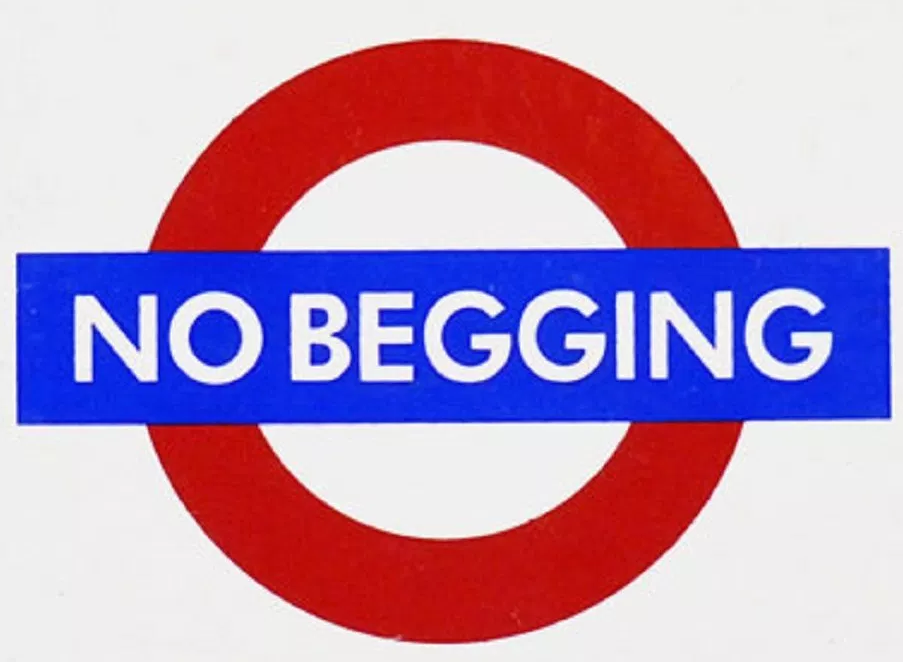People constantly misuse the phrase “beg the question” and its variations. Grammar criminals are everywhere. The center cannot hold; mere anarchy is loosed upon the world.
And yet, the facts are clear; can you not read the law? Aristotle first used the phrase τὸ ἐν ἀρχῇ λαμβάνειν (“assuming the original point”) to identify (and condemn) the kind of argument where the conclusion is smuggled into the premise: “Since all dogs are white,” the question-begger declares, “this particular dog is also white.” Were all dogs to be white, then it would be a valid enough argument, but the argument is never made, and so, if you are carried across “since we know that all dogs are white” by the exhorted pressure to agree with your interlocutor, you can find yourself nodding and agreeing that this particular dog must be white. It can be hard to say no when things are said with great authority.

As the good people at Language Log run it down, “a cavalcade of misleading translations” has brought us to the point where people say “begs the question” when they really mean one of three distinct things: “implies the question,” “hides the question,” or, and especially, “demands that we ask the question.” From one clear and precise meaning, a plurality of possibility; from one clearly proscribed form of utterance, we have reached the dread place where people use the phrase to mean all kinds of useful things. Worse yet, it seems that when they do, they are often understood.
There is a blood-dimmed tide. The falcon is all like “What?” when the Falconer texts. Stop slouching and get yourself to Bethlehem, young man.
How have we gotten to such a dreadful and Yeatsian place? It all began when Aristotle’s fallacy, in Greek, was translated as “petitio principi” in Latin, and, at some benighted medieval point, the Latin word “petitio” entered English as “beg.” And here, you see, the word “beg” created a dilemma: does it mean to postulate, in an argumentative sense—to assert, to demand, to charge—or the more deferential form of petitioning that we associate with begging? It should have always been something like “assume the question” or “argue the question.” Instead, ARGUING before the court—and DEMANDING justice—have gotten all mixed up with a petitioner merely begging.
Is this begging an aggressive action, or merely a passive request? Is it the sort of nuisance that intrudes upon your consciousness–that tasks you, that heaps you, that you can see in it an outrageous strength, sinewed with an inscrutable malice–or is it the sort of thing you can just kind of say “no” to and walk on? To “beg” when you mean “demand” seems very polite to me, redolent of gentility and courtesy; to an American, it scans as Britishness, by which I mean “upper class.” When an American-accented Darth Vader alters the deal, you “pray” (in your imperial British English) that he doesn’t alter it further.
Instead of actively and assertively arguing the original point—demanding it—one finds oneself passively allowing the argument to argue itself; instead of taking rhetorical action yourself, you are awaiting (and inviting) rhetorical action from elsewhere. The argument will argue itself.
And so: I didn’t make the police attack that person who was on the street begging; I didn’t commit violence against those people to whose presence I objected; I merely requested that the police take action. I’m not calling the police; I’m merely asking you to leave, and allowing you to draw your own conclusions. I’m not asking you to leave; I’m merely giving you the look that tells you to fuck off. I’m not looking at you; you stayed away.
Why does this matter, some might ask; why, some might demand, should anyone care? Why must those who fail to use the phrase “beg the question” to mean precisely what Aristotle meant when he used the words that would later be translated into Latin and then translated into English as “beg the question” meant, why should those people be rebuked and corrected?
But let’s not ask that question. Let’s not have that argument. After all: the original meaning of phrases is the one we always use, forever, and language never changes. And so, it therefore follows.





